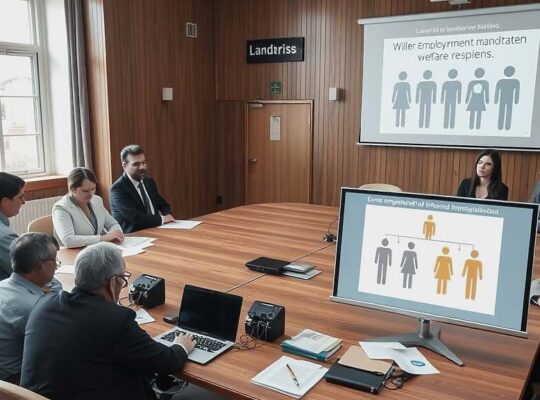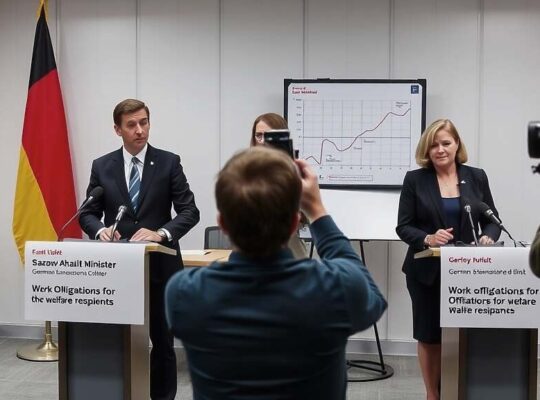A heated debate has erupted in Germany following recent comments by Minister for Economic Affairs, Katarina Reiche (CDU), suggesting that Germans may need to work “more and longer”. The remarks have drawn sharp criticism from across the political spectrum, sparking a broader discussion about the nation’s future pension system and labor market policies.
Sören Pellmann, leader of the Left Party parliamentary group, accused Minister Reiche of promoting “an increasingly aggressive campaign by the CDU and employers against the majority and the social state”. He characterized her proposals as a veiled attempt to implement pension cuts, mandate extended working hours and further reduce social benefits, echoing what he described as aspects of a “Merz Agenda 2030”. Pellmann emphasized that strained healthcare and pension insurance systems are exacerbated by the reluctance of the CDU and SPD to ensure that higher earners and wealthy individuals contribute appropriately to their funding.
Instead of lecturing the public, Pellmann urged the Minister to address long-standing systemic issues. These include limited access to the job market due to inadequate training and the impact of a lack of childcare facilities forcing many women into part-time employment. He highlighted the significant volume of unpaid overtime – approximately 1.2 billion hours last year – and the prospect of poverty-level pensions for many individuals after a lifetime of work.
Gerrit Huy, parliamentary spokesperson for labor market policy within the AfD parliamentary group, focused on the declining productivity rate as a pivotal problem. She argued that insufficient investment in rationalization and innovation is hindering economic growth and undermining the stability of the pension system. Critiquing Minister Reiche’s approach, Huy stated that addressing productivity issues should be the priority, rather than placing blame on the working population.
Huy further pointed to the significant number of employable individuals – estimated at five million – who are either not working or not earning enough to support themselves, with a substantial portion receiving social welfare benefits despite available job openings. She also cited a high rate of part-time employment, particularly among women and questioned the assumption that childcare shortages are the sole factor driving this trend. Furthermore, she highlighted the trend of individuals entering apprenticeships at a later age, averaging 20 years old.
The current coalition government is currently grappling with formulating a new pension policy in the wake of Minister Reiche’s proposal. Sebastian Roloff, the SPD parliamentary group’s spokesperson for economic policy, refuted her approach, deeming it “excessively simplified and failing to accurately reflect the reality of the situation”. While acknowledging the need for additional labor, Roloff advocated for attracting skilled workers from abroad and incentivizing older workers to remain in the workforce through measures like tax relief and increased flexibility in retirement age, echoing plans previously proposed by the former coalition government.












